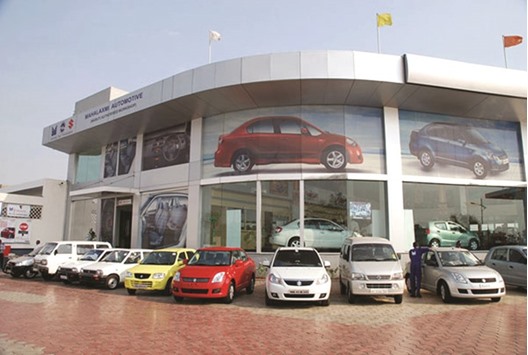The government’s demonetisation drive has impacted the Indian automobile sector, as many manufacturers reported lower sales figures for November and experts have predicted a further slowdown in the coming months.
“The sales numbers for November are not showing the actual ground reality. We will only get to know the real negative impact of demonetisation by January-end,” Abdul Majeed, Partner-PricewaterhouseCoopers, told IANS.
“We are seeing the wholesale numbers for November – which is basically secondary sales from factory to dealers and not the retail sales which is the sale from dealers to customers.”
Majeed observed that manufacturers are even expected to reationalise their production keeping the retail sales in mind. “We can also expect block closures to rationalise production,” Majeed said.
According to Kumar Kandaswami, senior director, Deloitte in India, the rural sales of two-wheelers, as well as off-take of used cars, will get adversely impacted due to the demonetisation move.
“Some cash-dependent segments like the two-wheeler rural segment, used cars and the used two-wheeler segment will be adversely impacted due to the demonetisation move,” Kumar Kandaswami, senior director, Deloitte in India, told IANS.
On Friday, automobile major Hyundai Motor India reported a marginal decline of around 1% in its overall sales including exports for November.
The company’s domestic sales during the month under review receded by 8.32% to 40,016 units from an off-take of 43,651 units in the corresponding period of 2015.
Nevertheless, the company’s exports rose by 21.90% to 17,077 units from 14,008 units shipped off abroad during November 2015. Hyundai Motor India is the country’s largest passenger car exporter.
Besides, the two- and three-wheeler major Bajaj Auto too reported a decline in its November sales. The company’s total sales including exports fell by 13%.
The total sales during the month under review stood at 269,948 units from an off-take of 309,673 units during the corresponding month of 2015. Last month’s domestic sales were down 10% to 154,523 units from 172,358 units sold during the like month of last year.
The overall exports during the last month declined by 16% to 115,425 units from 137,315 units shipped out during the corresponding month of 2015. Bajaj Auto’s total motorcycle sales during the month under review decreased by 12% to 237,757 units from 270,886 units sold in the like month of last year.
The overall commercial vehicle sales declined by 17% to 32,191 units from 38,787 units sold during November 2015.
Earlier, Eric Vas, president, Motorcycle Business, Bajaj Auto had said demonetisation had impacted company’s two-wheelers sales.
Vas had at that time divulged that sales were down by 50% in rural India and 25% in urban areas during November. However, later in an interaction with IANS, Vas said overall sales recovered from the initial impact of demonetisation subsequently, but were still lower during November.
On Thursday, a slew of automobile firms had come out with lower sales figures for the last month citing the demonetisation impact. However, the country’s largest carmaker Maruti Suzuki seems to have bucked the trend and reported a 12.2% increase in sales for November.
Even Finance Minister Arun Jaitley at the Hindustan Times Leadership summit on Friday cited the mixed automobile sales results during the most challenging month of the demonetisation exercise, as an example that the move has not adversely impacted the economy.
As per Sridhar V, partner, Advisory Grant Thornton India LLP, various positive factors like low interest rates will help to contain the negative impact of demonetisation on future sales.
“Lower interest rates, fuel cost, multiplier effect of a healthy monsoon, year-end discounts, new introductions and innovative ways being used by the dealers to finance vehicles across all categories and keep up sales will help to contain the adverse negative impact of the demonetisation drive,” he said.

A slew of automobile firms in India reported lower sales figures for the last month on Thursday citing the demonetisation impact. However, Maruti Suzuki seems to have bucked the trend and reported a 12.2% increase in sales for November
